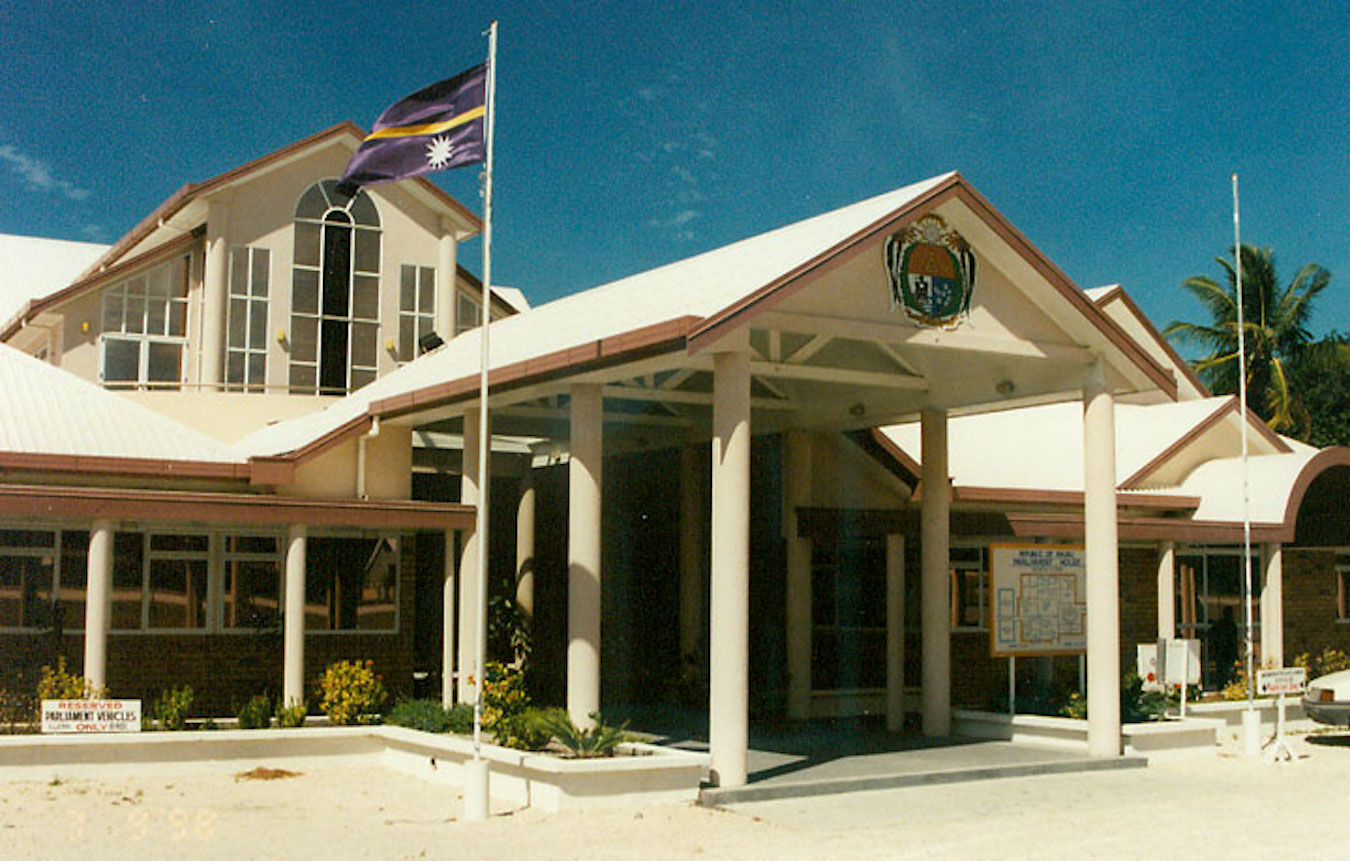by Brian Hioe
語言:
English
Photo Credit: Lai Ching-te/Facebook
NAURU ANNOUNCED THAT it would be breaking diplomatic ties with Taiwan this morning, in favor of recognizing the People’s Republic of China.
This brings Taiwan down to twelve diplomatic allies. Reportedly, Taiwan was only informed of Nauru’s decision to switch ties at 11:45 AM this morning. Consequently, Taiwan announced that it would be ending diplomatic relations with Nauru at a press conference held at 2:24 PM.
This is the first major move by China aimed at increasing pressure on Taiwan, coming only a mere two days after the presidential and legislative election that took place on January 13th. The victor of the elections was Lai Ching-te of the historically independence-leaning DPP, hence the move by China.
It was expected that China would seek to flex its muscles after the victory by Lai, with the Chinese government seeking to frame Lai as a dangerously pro-independence provocateur in spite of Lai emphasizing that he would continue the Tsai administration’s adherence to the status quo. Clearly, China’s response to the decision of the Taiwanese people was to resume threats.
It was only a question ahead of time what form such attempts to pressure Taiwan would take. China could potentially announce new military exercises, for example, though the days before the election saw China launch a number of balloons over Taiwan, fire a satellite into space over Taiwan in such a manner that triggered the nationwide alert system, and though it continued its regular military activity in the airspace and waters around Taiwan during this period.
This could still take place in the future. Yet the quick switch in diplomatic recognition was likely coordinated ahead of time in the event of a Lai victory. If there had been a KMT victory, China would have likely hoped to call the move off, otherwise Beijing would undercut the claim of its domestic proxies in Taiwan, the KMT, to be the only political party able to maintain peace in the Taiwan Straits and talk Beijing out of threats directed at Taiwan. The KMT has increasingly framed Chinese threats directed at Taiwan as only the result of the DPP’s obstinance on cross-strait relations, again, hoping to paint the DPP as provoking China.
 The parliament of Nauru. Photo credit: Public Domain
The parliament of Nauru. Photo credit: Public Domain
Notably, in the release by China’s Taiwan Affairs Office (TAO) after the Lai victory, the TAO stressed claims that the DPP does not represent majority opinion in Taiwan and that it would work with friendly political forces in Taiwan. It is possible this is a signal that the TAO hopes to rout around the Lai administration to conduct relations with pan-Blue political parties.
Nauru has a population of 9,852 and by GDP (PPP) is the 224th-ranked country in the world out of 230 or so countries and territories. Taiwan is many magnitudes of size larger than its diplomatic allies, whether measured in terms of the size of population or economy. However, Taiwan has historically maintained ties with such allies in order that they may speak up for it in international organizations of which it is not a member.
At the same time, many of these countries have questionable human rights records, and Taiwan maintains ties with these countries in spite of this. Examples include Eswatini, one of the world’s last remaining absolute monarchies, and Honduras, in which Taiwan recognized an election that was widely viewed internationally as stolen–though Honduras has since broken ties.
Taiwan has been complicit in human rights violations in Nauru as well, as committed by the Australian and Nauruan governments. Taiwan was part of a secretive medical deal in which Taiwan treated refugees denied admittance to Australia who were in refugee camps in Nauru. Namely, it has been a practice of the Australian government for some years to prevent asylum seekers who attempt to reach Australia by boat from reaching Australian shores and claiming asylum by detaining them in offshore immigration centers in the island nation of Nauru and on Manus Island in neighboring Papua New Guinea. Such refugees number in the thousands. Indeed, apart from the human rights violations in the denial of refugee rights, given the security links, Australia is likely to be concerned about China’s deal with Nauru as well–perhaps the US as well.
Either way, the impact on Taiwan is relatively minimal, given that Taiwan’s unofficial diplomatic relations with western powers such as the US are much more significant for it. Still, the move serves as a way for Beijing to register displeasure with the incoming Lai administration and to give the KMT ammunition for its claims that Taiwan will continue to face threats from China with the DPP in power.
Yet it could also be that China unexpectedly gives Lai and the DPP a gift, in shoring up support for an incoming administration that the public may otherwise not be very enthusiastic about. After all, it has more often than not been the pattern in past years that Chinese threats lead to upticks in support for the DPP, as the satellite launch was potentially seen as doing because of the alert mistakenly stating that a missile had been fired over Taiwan in English. With the KMT leaning into claims that this was deliberately engineered, the pan-Blue camp would also be tacitly recognizing that the DPP seems to gain from a perception of Chinese threats against Taiwan, in such a manner that leads to stronger support.

